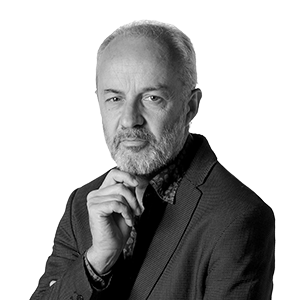The 'totum revolutum' of Josep Pla


I write "Plan" and the computer's automatic spell checker suggests Planning. No. I get absurdly angry at the machine: I said Pla! Josep Pla. A great prose writer, journalist and essayist of the 20th century Europe that Europe will never recognize. In Catalonia itself, there are still many people who refuse to give him immense merit and genius. It's very simple: to enjoy him, you don't have to fall in love or agree, you just have to read him.
But yes, Pla is also rooted in the concept of planning. When he was 28, in 1925, a century ago, he published his first book, Things seen (now republished by Destino by Maria-Arboç Terrades and Jordi Cornudella), his ambition was already perfectly honed. Reading this work today, we see that it foreshadowed a grandiose program: the will to construct a portrait that was both meticulous and holistic of Catalan society and the human soul. Skeptic, passionate, graphomaniac, hedonistic, and diabolical, he wanted to write about himself and to write to us. The young Pla acted like a coward—he did so all his life—to hide a boundless desire for literary success. A perfectly justified desire.
The tacky, weather-beaten journalist already demonstrated unmitigated talent and determination. I repeat: he had only 28 years old. Read it. Read it. Things seenYou will find polished pearls like this one. It is titled Autumn in Calella de Palafrugell. I pick up some scattered fragments: "The sea is now a diverse and changing song of a subtle and delicate incoherence. The sun is hardly bothersome. The Africanisms that our landscape and our sea have, the monotony of the sky, the whiteness of the walls, the dryness of the fields, the dogmatism of our hearts, I know. I take advantage of the time to talk with the priests and the women [...] With my boat and my sail I navigate through these coves and little villages nestled in the geological grandeur of the Costa Brava. quarrel [...] Politics and journalism, grammar and rhetoric, the manual and the academy, are they not the useless debris of life? life... Let everyone arm themselves with their satchel and their reed shotgun and go out in search of the melodies of this world that always want high..."
Genuine and unpredictable, uninhibited and brave, sarcastic and poetic, with Things seen She won over the public and critics alike. Her voice was powerful, embodying a highly crafted simplicity, staring prosaic reality in the face and making it soar. Despite the devastation of the war and the burden of Franco's regime, despite her ideological shifts, the public would never abandon her. Today, she is a classic in a country that doesn't take sufficient care of the classics: The gray notebook It should be required reading for everyone. Thanks to the excellent and monumental biography dedicated to him by Xavier Pla, A furtive heart. You haven't read it? Really? How lucky you are to still have that triumph waiting for you: the pleasure of discovering or rediscovering it.
The Plan that the farmer made when he was older told us that he had always worked at writing like someone working the land, very much at the root of the dust and the sprouts, tilling it obsessively, caring for each word as if it were a seed, marveling at the fruits and cursing the hailstorms. Like a hard-working smallholder who wants to leave his descendants the neatly ordered farmhouse, which transmits to us the joy of feeling free in his fields, contemplating the peaks and the sea from afar. The whole country. And the world, too. All the Things seen. I could have also titled them Things experienced. Because in Pla, life and work always formed an inseparable totum revolutumHe was his work, he was the country, he wanted to be everything.
